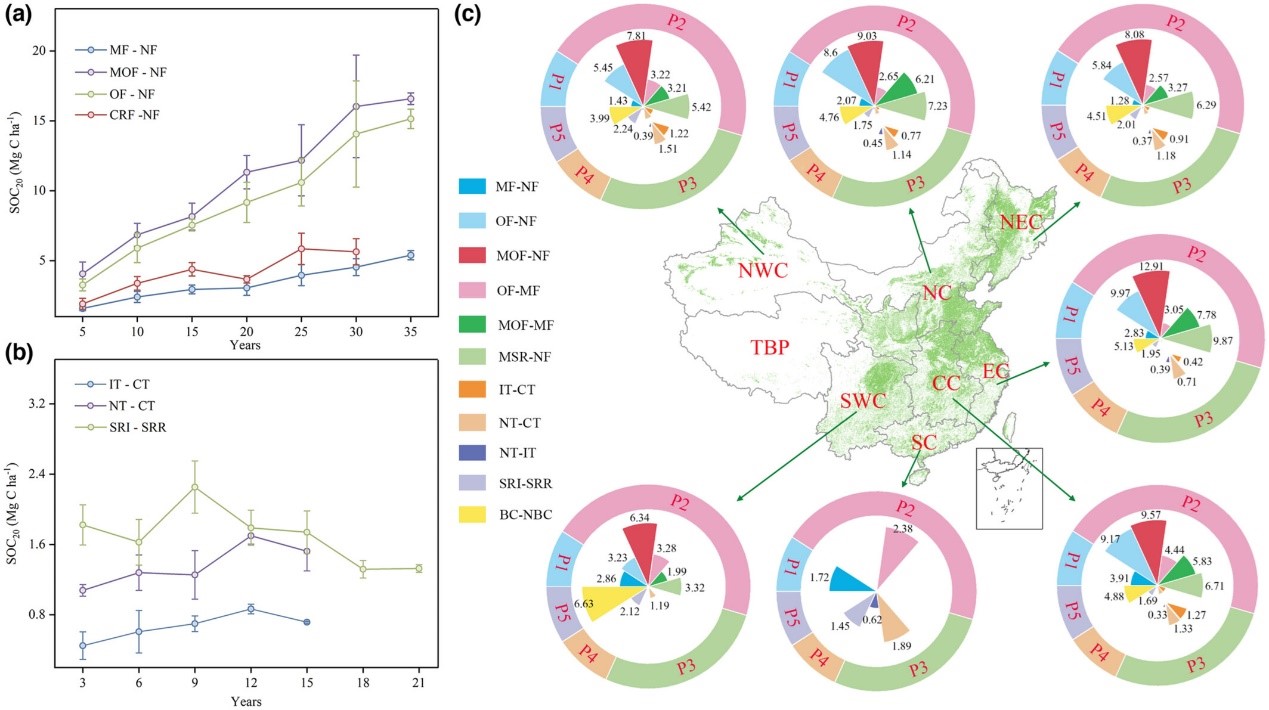Global Change Biology | April 6, 2023
Researchers from China Agricultural University conducted a study to understand how specific farming practices affect soil health and crop productivity in the face of climate change. By analyzing different management approaches, they found that implementing site-specific best practices significantly increased soil organic carbon (SOC) levels and maintained or improved crop yield. The most successful strategy involved combining mineral fertilizer with organic inputs, resulting in a remarkable 30.6% increase in SOC and a 79.8% increase in crop yield. They also identified key conditions for optimal results, such as arid regions, higher soil pH, lower initial SOC levels, longer implementation duration, and appropriate nitrogen input levels. Additionally, the study revealed a relationship between SOC and crop yield changes, suggesting the positive role of nutrient-mediated effects. The findings highlight the importance of improving SOC to enhance crop performance, but limitations remain in areas with low initial SOC, excessive nitrogen inputs, inadequate organic input, or inappropriate tillage. By optimizing farming practices based on specific conditions, we can contribute to sustainable agriculture and combat the challenges of climate change.

The characteristics of management-induced spatial–temporal variability SOC. The map in (a) and (b) showed management-induced SOC temporal changes. (c) showed area-weighted mean SOC stocks change in seven agronomic regions under different BMPs of China. The seven agronomic regions are NWC, Northwest China; NC, North China; NEC, Northeast China; EC, East China; CC, Central China; SC, South China; and SWC, Southwest China. “Map lines delineate study areas and do not necessarily depict accepted national boundaries”.




